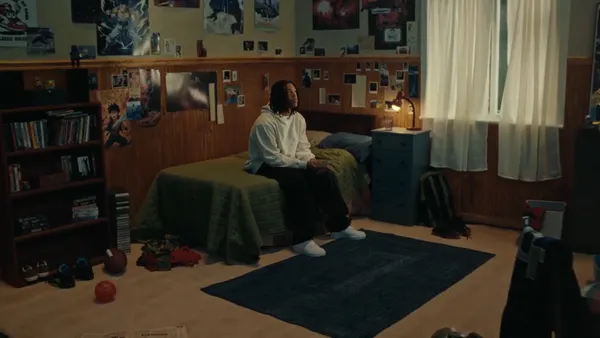The following is a guest post from Grant Pace, partner and executive creative director at marketing agency CTP. Opinions are the author's own.
As the events of the past few weeks have unfolded, I've found some comfort in focusing on what feels most natural to me: Staying calm and trying to help clients solve problems with creative thinking.
I believe crisis can lead to opportunity, reveal strengths and bring people together. I still remember the sense of community and shared grief I felt after 9/11. So, as a marketer, I try to lean into these times when the ground shifts under our feet, whether it's a dip in the economy, a bad season on the sports field or something more unnerving like what we're witnessing now.
I've had some experience with it. In 1995, I went to ad agency McKinney & Silver to help relaunch Audi in the U.S. Sales had plummeted after a "60 Minutes" segment accused the cars of "unintended acceleration," killing some motorists. The story was later retracted, but the business suffered significant damage. We were able to breathe new life into the brand by highlighting how fun the cars were to drive. Time magazine took note, even quoting some of the more playful lines I had written. The campaign connected with car lovers — and Audi was back.
That brings me to Corona beer. We're not the brand's agency, but I have deep roots in the beer industry, so I've paid close attention to its plight. I saw the tweet that said "38% of beer drinking Americans would not buy Corona under any circumstance now," which CNN helped go viral. Having been on the losing end of some past beer-related disasters, I felt for them. So random and nonsensical, but consumer behavior can be painfully fickle — especially when fear invades, because it too is contagious.
But here's the lesson. Amid all the insanity, Corona parent company Constellation Brands CEO Bill Newlands didn't panic. He didn't get defensive or start blaming others, and he didn't squirt a lime into the eyes of the cynical social media monster. Instead, he stayed calm and led with his heart, saying simply, "Our thoughts and prayers go out to those affected by this terrible virus and we hope efforts to more fully contain it gain traction soon." Nice.
He added that his business was, in fact, healthy: "We've seen no impact to our people, facilities or operations and our business continues to perform very well." And then the kicker, he shared data that showed Corona sales were actually up 5% in the U.S.
The response was genuine, empathetic and backed by data. Suddenly, Corona wasn't a punchline to a bad joke. It was human, and it helped foster a deeper connection with him, his employees and the brand.
Emotional intelligence is the ability to use times of extreme emotion to work for you, instead of against you. Rooted in empathy, a mindful reaction to the challenge at hand, and the opportunity to create real, human connections with those affected. Those connections are the cornerstone of a brand's success.
We don't know when, but the pandemic will eventually recede. Thanks to a CEO's ability to put a more human face on his company, the Corona brand may well come out of it healthier than ever — which is astounding.
In the meantime, agencies like mine are still seeking creative ideas to help clients stay focused, calm and, most importantly, human.












